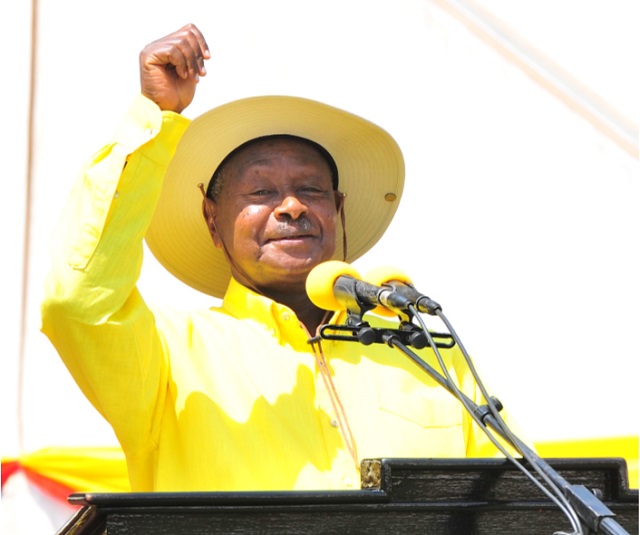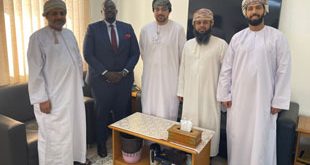
‘No’ to printing elections money, but is raiding the budget any better?
Kampala, Uganda | HAGGAI MATSIKO | Hidden in plain sight. That is what President Yoweri Museveni’s campaign money for the 2021 election looks set to be, according to experts.
They say the money is this time in the budget and that is the reason the budget has hit Shs.40.5 trillion.
That is a 26 % jump from last year’s Shs32 billion budget. Equally troubling is the fact that huge budget bump, about half of the budget or 44%, is to be financed by debt.
While President Museveni and his ruling party, NRM, have no known sources of income apart from monthly collections from party Members of Parliament (which are usually under a billion a year) and donations from supporters (that never hit Shs.50 billion), they spend hundreds of billions every election cycle.
In the past, the government has either printed or diverted money from other sectors to finance President Museveni’s re-election. This led to sharp spikes in inflation and sharp slowdowns of the economy as the central bank moved in to control the resultant heating up.
This time, it appears, the government is attempting a dual-pronged strategy of borrowing heavily to provide Museveni’s campaign slush fund without sharply cutting the budget votes of other sectors.
The question is whether that is a good or smart move.
To identify potential Museveni election money, one has to zoom into the figures published on https://www.budget.go.ug — the official Budget of Uganda Website managed by the Ministry of Finance.
The most obvious money is a budget item called ‘Presidential Initiatives’ under allocations to State House. It was only Shs.9.9 billion last year. But in the coming budget, the figure has jumped to Shs.132 billion.
The bulk of this is going into donations, which were only Shs.80 billion last year and are now set to swallow Shs.127 billion.
Then there is an item called `Administration and Support to the President’ which was Shs.245 billion. This has increased by Shs.10 billion to Shs.255 billion. The budget for the Vice President has remained unchanged.
In total, allocations to the Office of the President have increased from Shs.66 billion to Shs.92.5 billion and that of State House has almost doubled from Shs.274 billion to Shs.407 billion.
Going by the increases, therefore, under just the State House and Office of the President Budgets, President Museveni has hundreds of billions to move around as he wishes.
Then there is money used for classified expenditure, mainly in Defense and security. Last year financial year, the Defence Budget was Shs.1.9 trillion. It is now set to be a staggering Shs.3.5 trillion.
A huge chunk of this, Shs.2 trillion, has been allocated to capital investments of which a whopping Shs.1.9 trillion is to classified assets. The classified budget was last financial year only a little over Shs.600 billion.
“These resources will easily be diverted to fund elections,” says Economist Fred Muhumuza, who previously advised the Minister of Finance and now teaches at Makerere University.
He is one of those who believe that the chaos visited on the economy around previous election was most likely caused by printing of money and that the cash for elections this time could come from the budget.
“You have a huge budget, which has been increased by 25 percent,” he told The Independent, adding that the ruling party will “change tactic ahead of 2021”.
Muhumuza’s analysis is based on a significant chunk of the Defence Budget being usually classified and the expenditure of the State House and Office of the President budgets being largely at the president’s discretion. These three budget items are, therefore, the most vulnerable to diversion into funding political activity.
Increasing NRM spending
There are no official figures but Museveni’s ruling party spends big money at different times in elections.
Estimates informed by ruling party insiders show that Museveni’s party spent Shs13 billion in the 1996 elections, Shs30 billion in 2001, Shs50 billion in 2006.
Estimates for both the 2011 and 2016 elections are much higher, with insiders putting the figures at between Shs.120 billion and Shs.350 billion.
Overspending on elections was first felt heavily in 2011 and some of the money was drawn directly from the Consolidated Fund under circumstances that central bank Governor Tumusiime Mutebile later said were “not completely transparent”.
After the election, Mutebile said some of the money he made available for classified government expenditure might have found its way into funding Museveni’s campaign.
“I cannot determine how much of the money that I have created ends up in political electioneering. It happens,” he said.
Observers said this was the reason the economy was thrown into “total chaos immediately after the 2011 elections” when inflation hit 30 percent.
Since then, every general election cycle has brought fears that overspending by Museveni and NRM could pose danger to the economy.
Already, the government has secured a supplementary of over a trillion shillings in a sign of increasing election spending as Museveni traverses the country on a poverty fighting campaign.
And some observers are already seeing signs of the economy beginning to heat up. They point at an upswing in the inflation rate from 2.7% in March to 4.5% in April—just 0.5 percent points shy of the central bank’s threshold of 5 percent.
They also point at the shilling’s continued depreciation against major currencies, persistent high interest rates, among others.
Taken together with fears that a significant part of the upcoming budget could be diverted to fund elections has observers tensed up.
But Muhumuza says that Ugandans might not see significant increase in inflation in the build up to and post 2021 and that any inflation increases that may emerge, may not be as a result of printing cash. Mainly, Muhumuza fears that cash could be diverted from other areas—productive areas—which could mean delayed development.
 The Independent Uganda: You get the Truth we Pay the Price
The Independent Uganda: You get the Truth we Pay the Price



It’s fine
if the elephants are on their fight,it is the grass to suffer.
Thanx for sharing this nice blog.